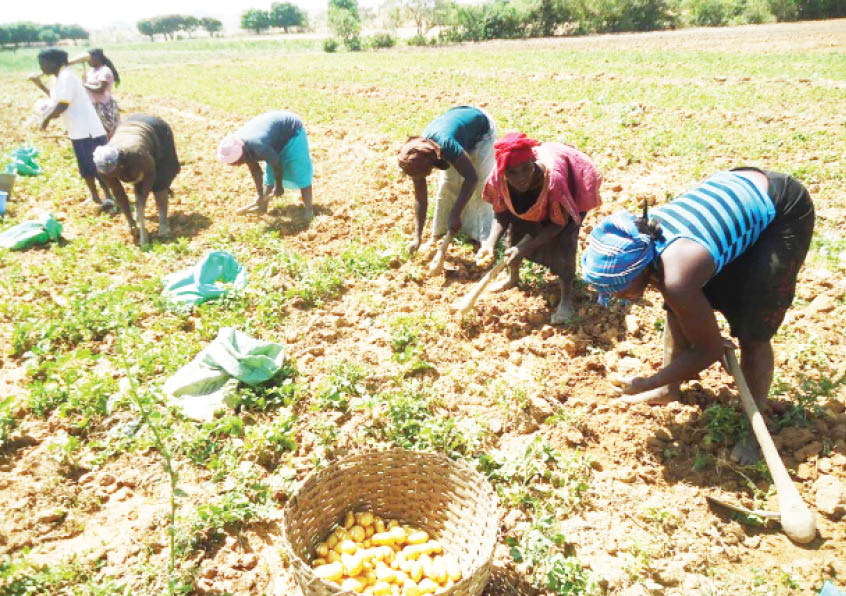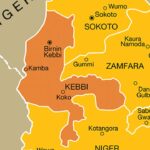With the goal of strengthening the potato industry and fostering sustainable economic growth in Nigeria, the Federal Ministry of Agriculture and Food Security (FMAFS) has unveiled a National Potato Strategy Plan 2023-2028.
The five-year strategic plan aims to reposition the Nigerian potato value chain as a commercially viable industry on the continent and in general, while simultaneously addressing inherent issues in the value chain, maximising possibilities and addressing them.
During the launch of the strategic plan in Jos, the capital of Plateau State, the permanent secretary in the ministry, Dr Ernest Umakhihe, expressed confidence that the National Potato Strategy would follow in the footsteps of the National Rice Policy Document, which had been successfully launched by the then Federal Ministry of Agriculture and Rural Development.
The initiative will also usher in a period of productive competitiveness in the Nigerian potato industry, according to the permanent secretary, who was represented by the director of the ministry, Dr A.G. Abubakar. He also said the goal of the ministry was to stimulate economic growth through various agricultural value chain activities.
He further stressed that it would create employment opportunities and improved livelihoods for Nigerian teeming youths and women.
“The ministry is embarking on massive production, processing, value addition and product development to be the bedrock for driving our industries. This launch couldn’t have been better timed following the president’s recent directive on the intensification of crop production.
“I have no doubt that the Nigerian potato industry has the potential to become globally competitive, given the country’s strong comparative advantage in production. Potatoes can be commercially grown in 12 states, which holds well for the activities of many stakeholders,” he said.
He praised the generous assistance provided by the International Potato Centre (CIP) in Nairobi, Kenya, the GIZ Global Programmes “Green Innovation Centres for the Agriculture and Food Sector-Nigeria” (GIAE), and other significant participants in the creation of the National Potato Strategy Document covering 2023 to 2028.
Dr Markus Wagner, the country director of GIZ, acknowledged that the German Cooperation had been partnering with Nigeria in the areas of sustainable economic development and transformation of the agri-food system, including the promotion and support of agricultural value chains for many years.
He said the goal of the German Cooperation was to strengthen the income, employment, financial inclusion and food security of smallholder farmers and agribusinesses.
The Plateau State governor, Caleb Mutfwang, praised the Federal Ministry of Agriculture and Food Security and promised to work even more closely with them, GIZ and other national and international organisations to ensure adequate potato supply in the country.
Mutfwang, who spoke through the commissioner for agriculture in the state, Bugama Samson Ishaku, declared that the state would lead the way in putting the Federal Ministry of Agriculture’s policy to increase farmers’ production capacity in the state into practice because Plateau is the centre of the potato industry.
Union pained over exclusion
But the Potato Farmers Union considered their exclusion as unfortunate, saying it is not good for the sustainable development of the industry.
Chief Dan Okafor, the national president of the Potato Farmers Association of Nigeria, told Daily Trust on Sunday that the union’s exclusion from the plan was a total disregard of the effort they had so far put into the industry.
“I want to express my displeasure over the said launch of a 5-year rolling plan on Irish potato without contacting our organisation (Potato Farmers Association of Nigeria, POFAN).
“It beats my imagination that all the efforts we made to reposition potato status, including running a training programme free in Plateau and other states is not recognised. Not even the POFAN chairman in Plateau was invited. None of the programmes in other states were we contacted,” he lamented.
Expressing his bitterness over the exclusion, Chief Okafor further said they had already done a lot of work with farmers in collaboration with partners, adding that the plan should have built on some of these work done for sustainable development.
“Recall that it was our organisation that brought the issue of Irish potato in Plateau to the Federal Ministry of Agriculture. We collaborated with the Netherlands and pursued it until they expressed interest. Who then are the farmers they discovered to work with?” He asked.
But officials said farmers were consulted before the plan was launched.

 Join Daily Trust WhatsApp Community For Quick Access To News and Happenings Around You.
Join Daily Trust WhatsApp Community For Quick Access To News and Happenings Around You.


